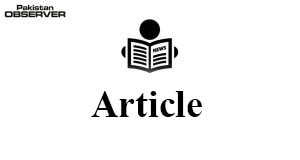World Dieticians & Kidney Day
CHRONIC kidney disease patient’s numbers are increasing, along with obesity, diabetes and hypertension in Pakistan. A person may prevent or delay CKD by eating the right foods.
Medical nutrition therapy (MNT) provided by Dietician Nutritionist can slow the progression and significantly reduce healthcare costs for CKD patients. However, dietary counselling is underutilized in CKD.
Recent research from the USA revealed that 90pc of non-dialysis kidney disease patients never meet with a dietician.
Almost two-thirds of medical providers reported that they rarely or never refer patients with early-stage CKD to a dietician for MNT. This scenario is worse in Pakistan.
Most adults with chronic kidney disease remain poorly informed of how diet influences disease management and progression.
As CKD progresses, nutritional needs change. Indeed, MNT is beneficial in all stages of CKD. There are several reasons why so few kidney patients receive MNT.
Some physicians do not refer patients to MNT under the mistaken belief that doctors may not recognize the strong role the dietary factors play in kidney disease or lack confidence that MNT will be effective. Some patients may be reluctant to invest the time and money in MNT.
Although patients may receive dietary counselling from physicians or nurses, such counselling often is brief and typically involve only broad suggestions such as reducing salt or protein intake.
By contrast, MNT includes an in-depth individualized nutrition assessment, personalized treatment plan and periodic monitoring and reassessment.
As CKD progresses, people often lose appetite because they find that foods do not taste the same-and may lose too much weight.
Eating more protein than the body needs may put an extra burden on the kidneys and cause kidney function to decline faster.
However, restricting protein could lead to malnutrition so people with CKD need to be careful.
Learning about portion sizes can help people limit protein intake without endangering their health.
Teaching how to read and understand lab reports helps patients to see how different foods can affect the kidneys.
People with CKD should talk with their dietarians about how they can make healthier food choices.
There is a need to focus on finding effective ways to increase awareness of the effectiveness of medical nutrition therapy and help more CKD patients to benefit from the dietician’s services.
This would encourage providers to recommend MNT and refer their patients to it as early as possible in the progression of CKD; this would enable patients to receive the nutrition-based approaches they need and could lessen the negative impact of CKD.
By educating, counselling and advocating, nutrition professionals and dieticians can play an important role in preventing this chronic condition.
Dietician Nutritionist recommends that patients with reduced kidney function choose foods carefully and guide them to the correct dietary changes.
These changes may include limiting fluids, eating a low-protein diet, limiting salt, potassium, phosphorous and other electrolytes and consuming enough calories if they are losing weight.
In the past, there has been a focus on individual nutrients in kidney disease, but CKD patients should be taught to incorporate the specific nutrients of the commonly eaten foods into their dietary patterns.
The high burden, steep cost, and increasing prevalence of chronic kidney disease require urgent action and MNT services must be part of any broad plan to reduce kidney failure incidences and improve public health.
The Dieticians Day is celebrated during National Nutrition Month, on the second Wednesday in March.
This year, March 10 marks Dieticians Day, an annual celebration of the dedication of dieticians as the leading advocates for improving the nutritional status of Pakistanis and people around the world.
—The writer is a Consultant Nutritionist and Head of the Clinical Nutrition Department at Shifa International Hospital & In-charge of the Islamabad Chapter of Pakistan Nutrition and Dietetic Society.










